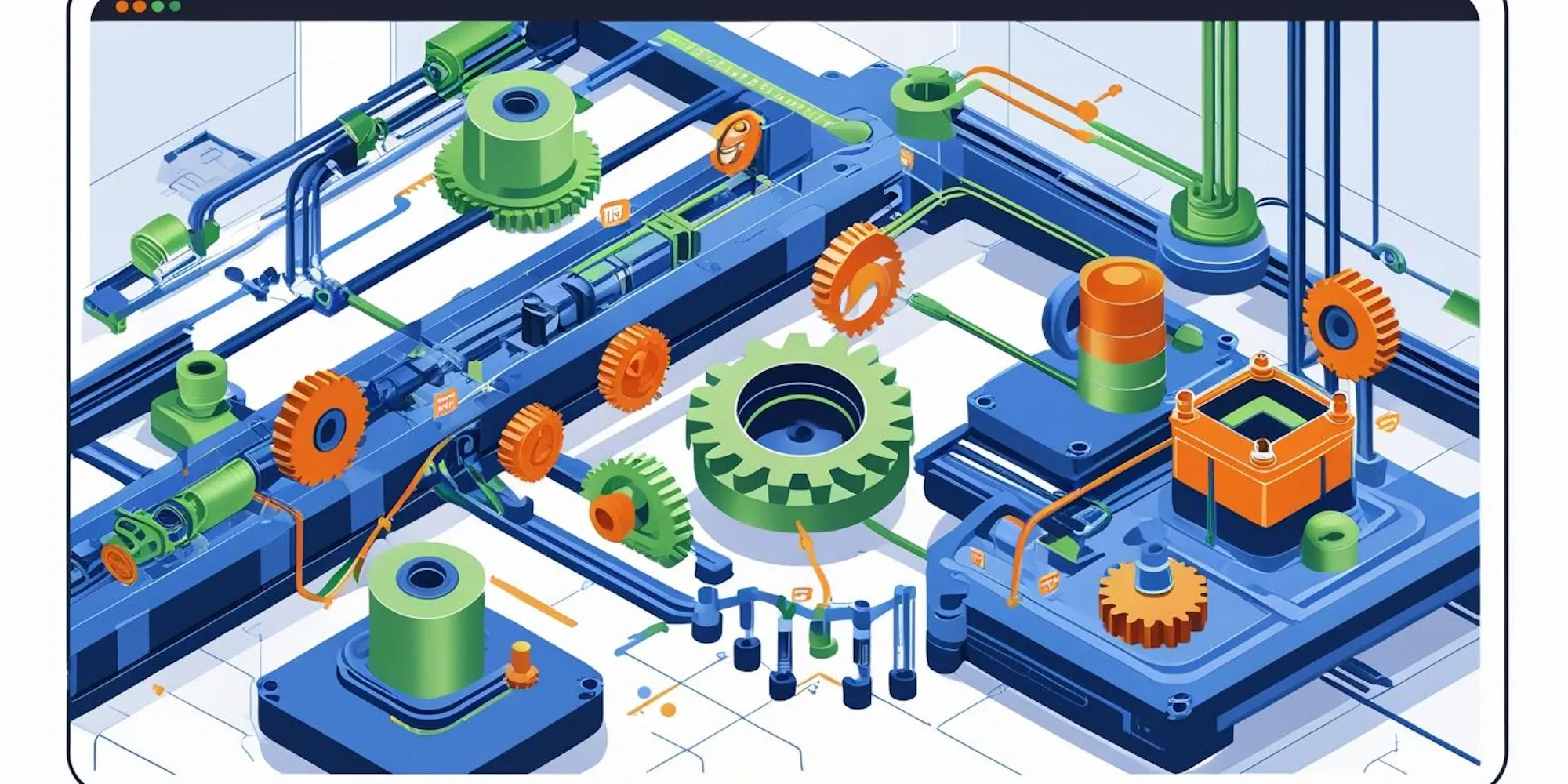Artificial Intelligence
12 min read
Streamlining Intelligent Automation Through Managed Services in Manufacturing: A Comprehensive Guide
The manufacturing sector is undergoing a significant transformation, driven by the increasing adoption of Intelligent Automation. As manufacturers strive to maintain a competitive edge, they are turning to Managed Services to streamline their automation implementation and maintenance. Recent industry data reveals that manufacturers leveraging managed services for automation deployment experience a remarkable 30% reduction in implementation time and 25% decrease in operational costs. This comprehensive guide explores how managed services are revolutionizing manufacturing automation implementation and maintenance.
The Evolution of Managed Services in Manufacturing Automation
The integration of managed services with intelligent automation represents a transformative advancement in manufacturing operations. Modern managed service providers (MSPs) deliver end-to-end solutions encompassing initial deployment, ongoing maintenance, and system optimization. This comprehensive approach allows manufacturers to focus on core operations while experts handle the technical complexities of automation implementation. Key statistics demonstrate the impact: - 40% reduction in system deployment time - 99.9% system availability - 25% improvement in overall equipment effectiveness (OEE)
The evolution of managed services in manufacturing automation is driven by the need for Manufacturing Efficiency. Manufacturers are seeking ways to optimize their production processes, reduce downtime, and improve product quality. Predictive Maintenance is a critical component of managed services, enabling manufacturers to detect potential issues before they escalate. By leveraging Industrial IoT and AI in Manufacturing, manufacturers can gain real-time insights into their production processes, enabling data-driven decision making.
Operational Excellence Through Managed Automation
Managed services significantly enhance operational efficiency through several key mechanisms: - Predictive Maintenance and Downtime Reduction: Implementation of AI-driven predictive maintenance systems, real-time equipment monitoring, and performance analytics enable early detection of potential issues before they escalate. - Quality Control and Process Optimization: Advanced monitoring capabilities ensure consistent product quality, leveraging AI-powered inspection systems, real-time quality control monitoring, and automated defect detection. - Data-Driven Decision Making: Managed services facilitate sophisticated data analytics capabilities, including real-time data collection and analysis, comprehensive performance dashboards, and actionable insights for process optimization.
A case study by a leading automotive manufacturer demonstrates the effectiveness of managed automation services. By implementing AI-driven predictive maintenance systems, the manufacturer achieved a 40% reduction in downtime within six months. Similarly, a major food processing company reduced defect rates by 35% and improved yield by 20% through managed automation services.
Scalability and Cost Management
MSPs offer flexible scaling options that adapt to changing production demands, enabling manufacturers to scale up or down as needed. The modular implementation approach and pay-as-you-grow model reduce capital expenditure, while the transformation of capital expenses into operational expenses optimizes resource utilization. Financial Impact: - Up to 40% reduction in total ownership costs - Optimized resource utilization - Enhanced return on investment (ROI)
Implementation Strategy and Best Practices
Successful implementation requires a structured approach:1. Assessment Phase: Evaluate current processes, identify automation opportunities, and define clear objectives.2. Pilot Implementation: Start with critical processes, measure and validate results, and refine the approach based on feedback.3. Scaled Deployment: Systematic rollout across operations, integration with existing systems, and employee training and change management.4. Continuous Optimization: Regular performance reviews, system updates and improvements, and ongoing technical support.
Industry-Specific Applications
Managed services have various industry-specific applications: - Automotive Manufacturing: 30% reduction in maintenance-related downtime, 25% improvement in OEE, and enhanced quality control through automated inspection. - Food Processing: 20% reduction in operational expenses, improved compliance management, and enhanced food safety through automated monitoring. - Electronics Manufacturing: Flexible production scaling, improved precision in assembly, and reduced waste and improved efficiency.
Challenges and Considerations
While implementing managed automation services, manufacturers must:
- Ensure robust cybersecurity protocols
- Address skill gaps through training
- Manage change resistance
- Maintain clear communication channels with service providers
Future Outlook and Recommendations
The managed services market for manufacturing automation is projected to grow at 12% CAGR through 2025. Manufacturers should:
- Conduct thorough vendor evaluation
- Develop clear automation objectives
- Create comprehensive implementation roadmaps
- Plan for future technology integration
Key Takeaways for Manufacturing Leaders
Strategic considerations:
- Evaluate current automation needs
- Assess potential ROI
- Consider long-term scalability requirements
- Prioritize vendor selection based on industry expertise
Technical considerations:
- Ensure system compatibility
- Plan for data security
- Consider integration requirements
- Evaluate support capabilities
Conclusion
Managed services have become essential for successful Intelligent Automation implementation in manufacturing. By providing expertise, technology, and ongoing support, MSPs enable manufacturers to achieve higher levels of operational efficiency, scalability, and cost-effectiveness. To get started, manufacturers should contact a trusted managed service provider and schedule a consultation to discuss their automation needs and develop a customized implementation plan, leveraging Smart Factory Solutions to drive Manufacturing Efficiency and Predictive Maintenance through Industrial IoT and AI in Manufacturing.
Reference Links:
https://appwrk.com/insights/intelligent-automation
https://www.veritis.com/blog/how-ai-managed-services-optimize-cost-efficiency-and-security/
https://hbr.org/sponsored/2023/04/how-automation-drives-business-growth-and-efficiency
https://em360tech.com/tech-articles/intelligent-automation-enterprise-strategy
Get the latest updates
We only send updates that we think are worth reading.



